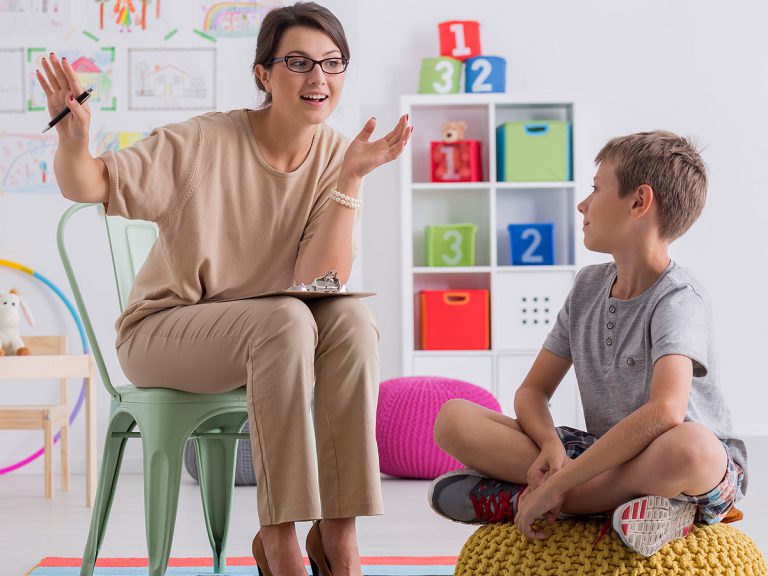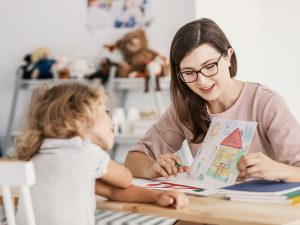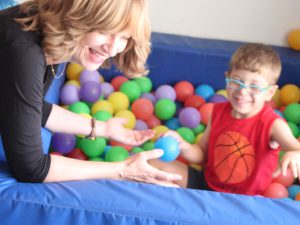Here’s a tip for parents to help their child overcome selective mutism: Talking-playing sessions at school or kindergarten.
A child in kindergarten or school with selective mutism – who can’t talk to either teachers or peers or both- really suffers; how can parents help their child gain the ability to talk?
Whenever possible, whether or not treatment with a therapist is being implemented, it is recommended that parents go to the child’s school or nursery between one and three times a week for short, enjoyable talking-playing sessions. These are informal sessions in which the parent plays and talks with her child in school or kindergarten. This can be done in the morning when the parent drops the child off at school before the school day begins, or at any other time that is convenient for parent and teacher. The parent considers where in the school the child will speak to her. Some children will speak with a parent or family member in a secluded corner of the class, while others need the security of a closed room in order to speak to the parent.
Here is a concrete example to illustrate such a session: A mother (or father or sibling) might come twice a week to the child’s kindergarten, sit in a secluded corner with the child, and play with Play-Doh or go fish or guess who for twenty minutes as other children come into the nursery. If the child speaks to his mother, he may continue doing so even after other children come within hearing range and eventually when they sit with him at the table. Another example could be of a child who will not speak to a parent in the regular classroom; he may have these sessions with his parent in a closed, private room in the school, perhaps inviting a friend with whom he talks outside school to join in. As he grows freer in his speech in these sessions with his parent and friend, additional friends may gradually join in, and so his circle of peers with whom he speaks in school will be widened.
Of course these sessions must be planned with the teacher so that they complement how the child is currently functioning in class.. In effect this is a structured behavioral exposure plan with small steps up a ladder that shape and generalize the child’s speech. I see parents as potential agents of change, helping their child speak. Many devoted parents have really helped their child move toward speech in school with talking playing sessions.









